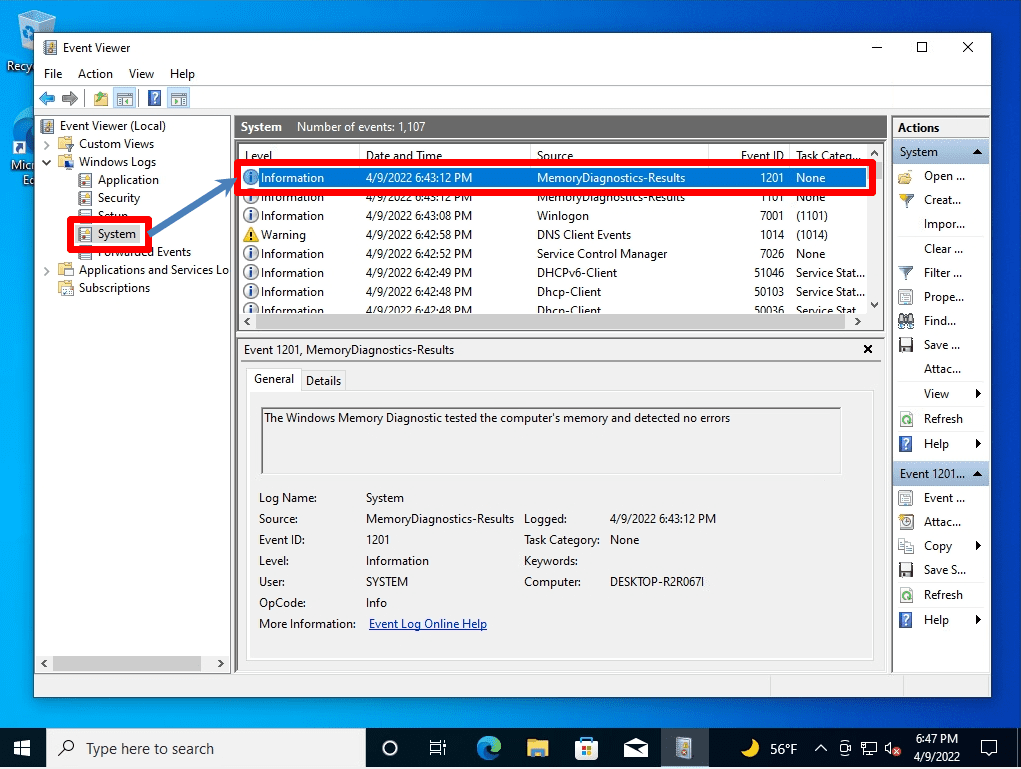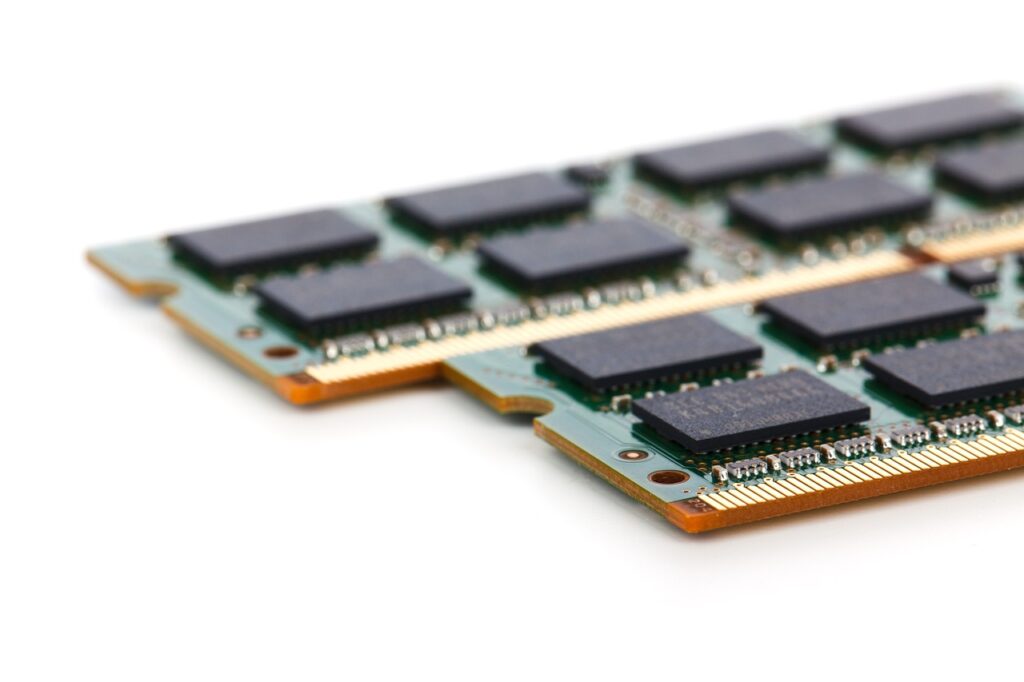“Windows Memory Diagnostic Tool” of Windows 10 is memory check software that can check if there is any abnormality in the memory that can be used with standard Windows functions. If the number of unintended restarts, sudden blue screens, and other errors that occur when using the terminal you are using increases, it is possible that there is a problem with the OS, disk, or memory, but there are cases where memory is the cause. It is often seen.
There are various ways to isolate the symptom, but first, we recommend “Windows Memory Diagnostic”, which is a standard Windows function. This time, we will explain how to check the log in the event viewer while running the memory diagnostic tool using Windows 10.
Windows10 PC:Windows Memory Diagnostic execution
Step 1:
At the bottom left of the desktop, enter “memory” from Search-> Select “Windows Memory Diagnostic”. ※As another execution method, it can be started by executing a command.
“Run”-> Enter “MDSCHED.EXE”-> “OK”
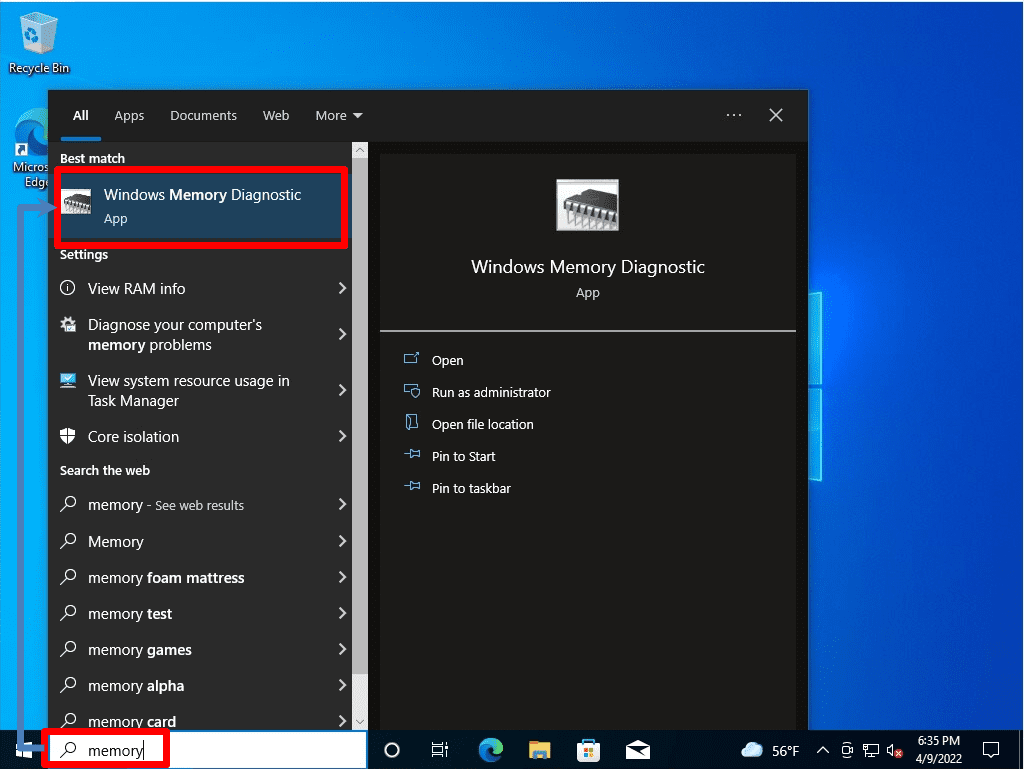
Step 2:
Select the timing to restart.
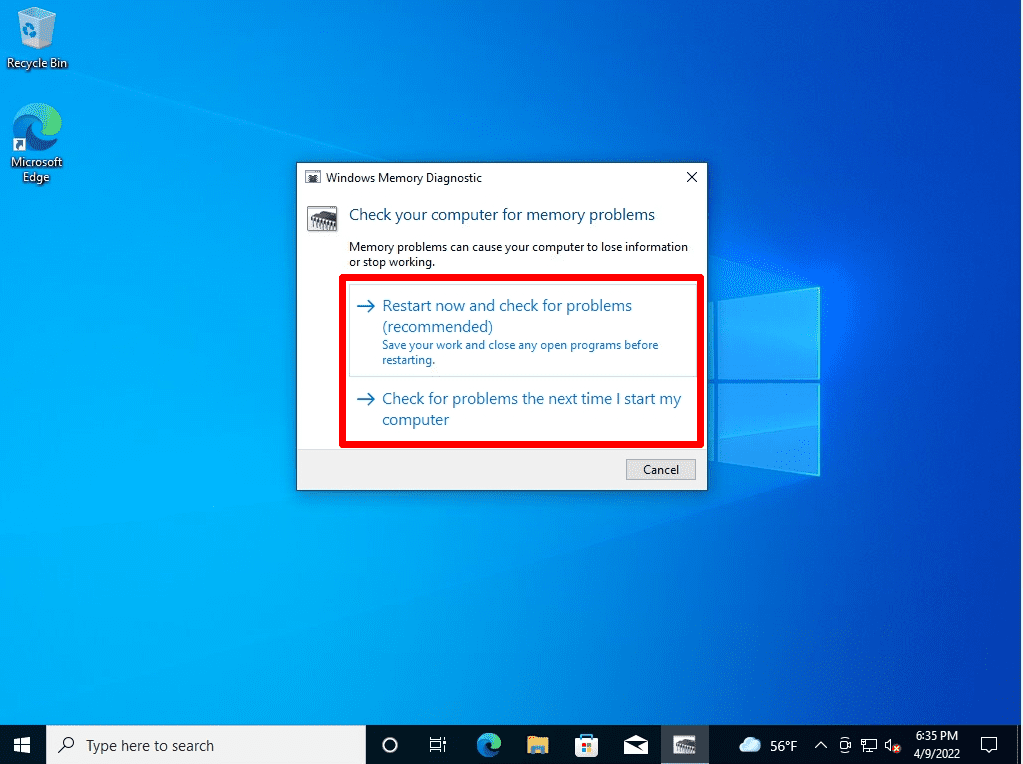
You will need to restart your computer to see if your computer has a memory problem. Restart your computer at any time.
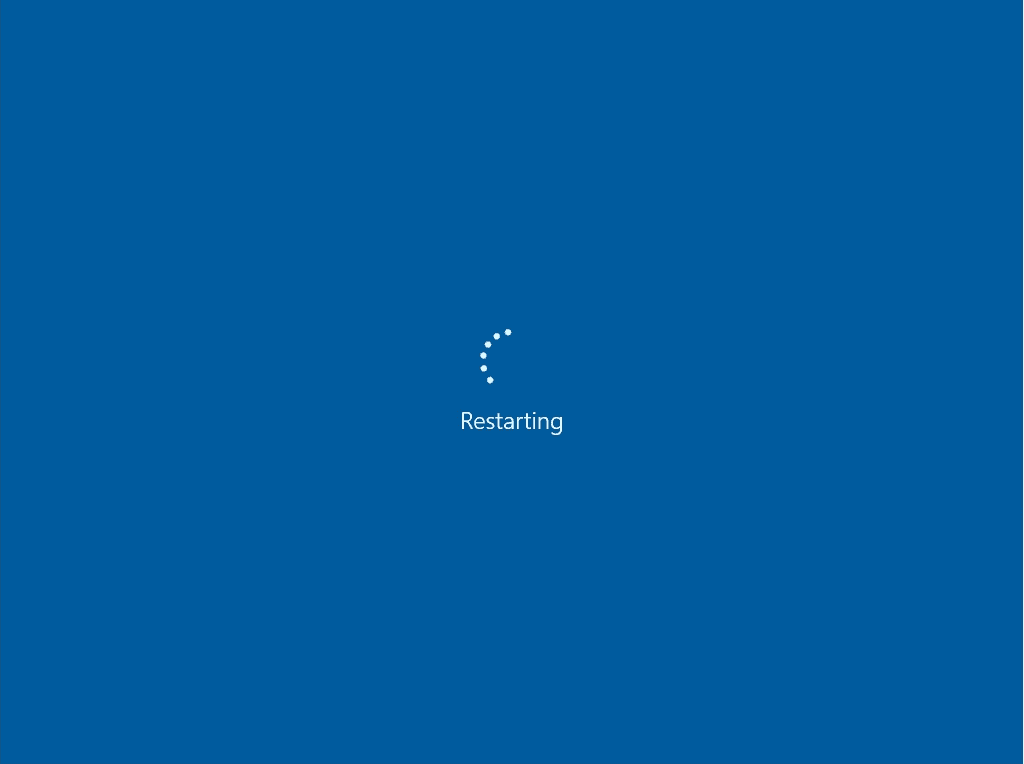
Step 3:
The Windows Memory Diagnostic Tool will start.
※The diagnostic processing time varies depending on the PC (installed memory) used.
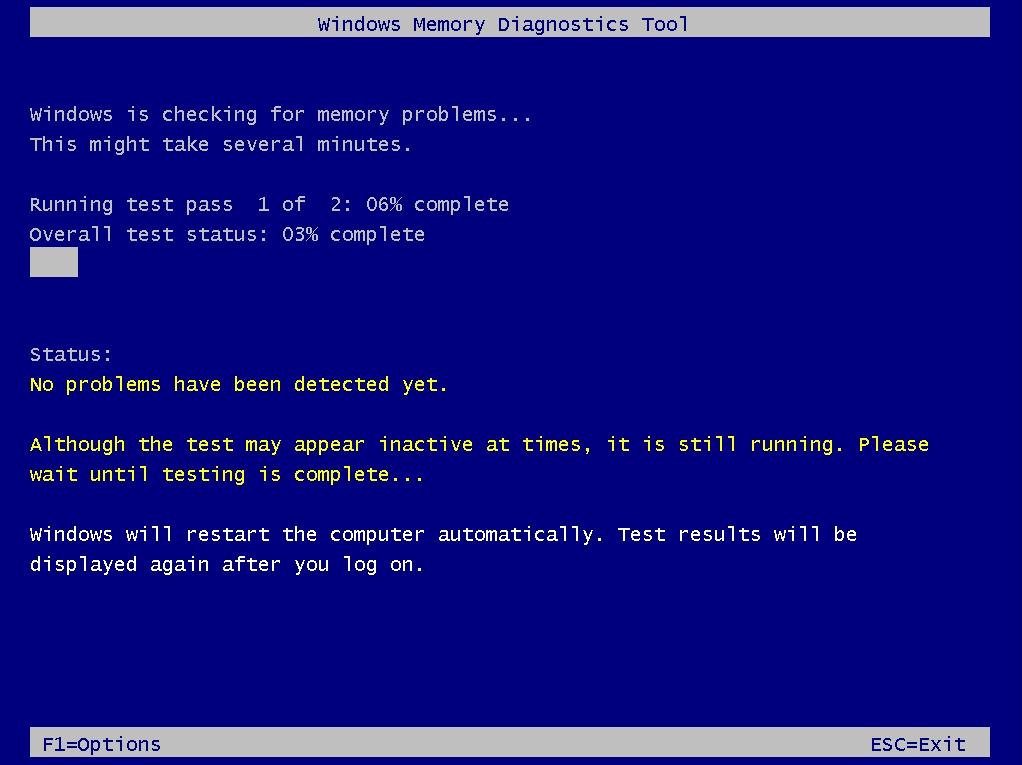
Step 4:
The memory diagnosis result will be displayed a little after the memory diagnosis is completed. * This time, the result screen was displayed in about 2 minutes.
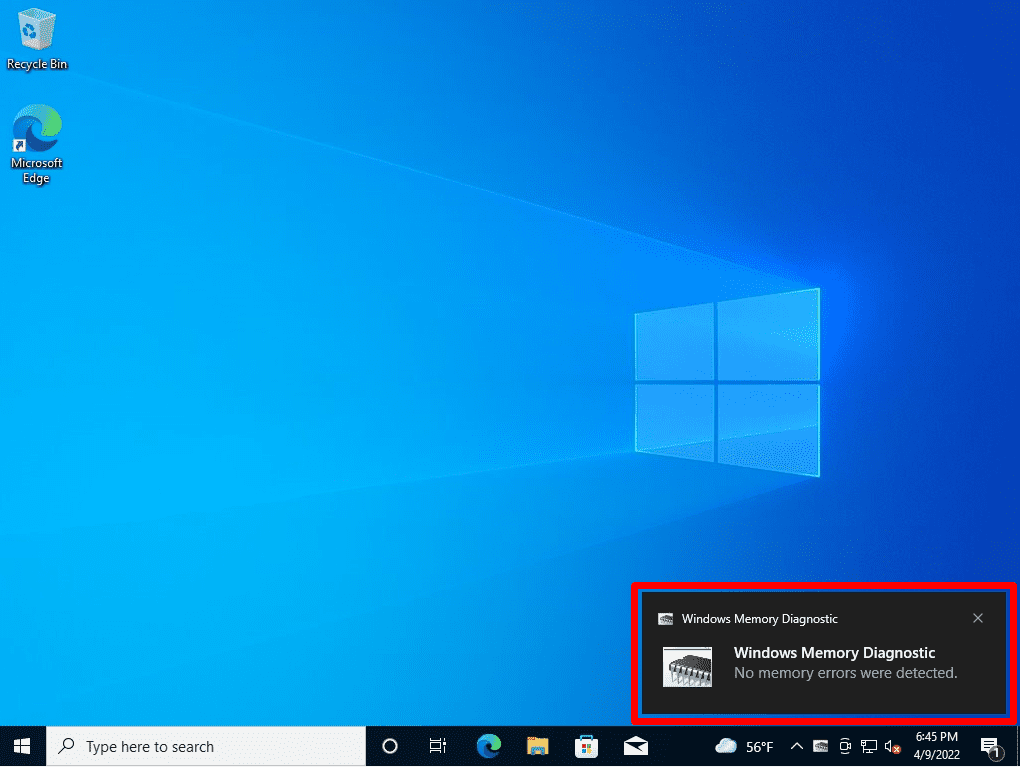
Check the Event Viewer log
The memory diagnosis result can be confirmed in the event viewer log. Right-click on the Windows mark at the bottom left of your desktop –> select Event Viewer.
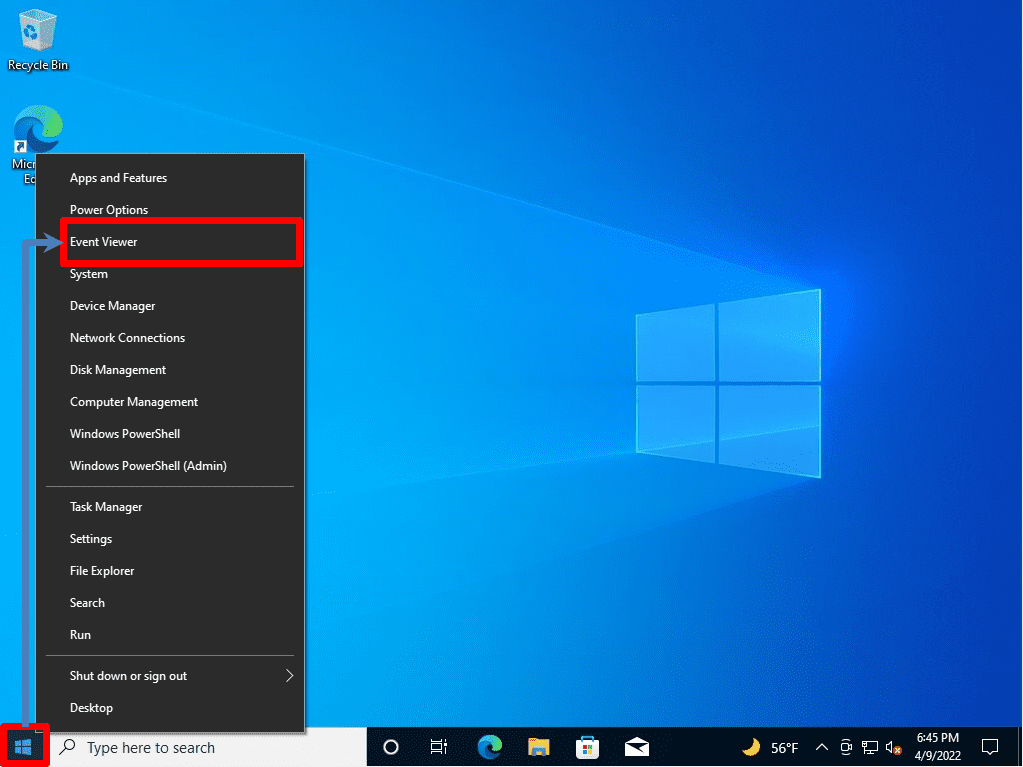
Windows Logs –> System –> Sources will output the “Memory Diagnostics-Results” log and display the results.
